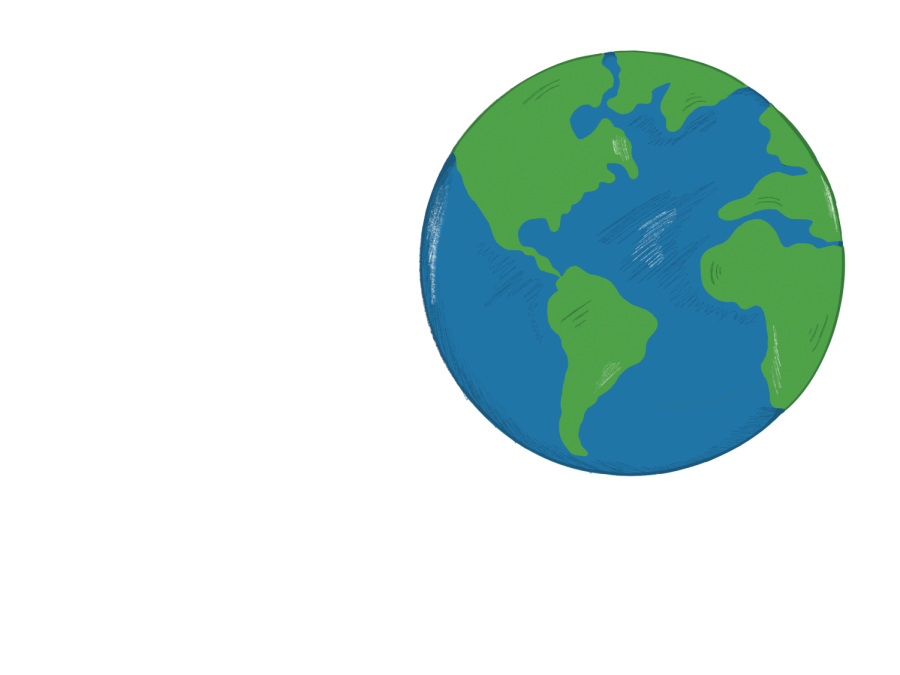Solving the climate crisis can be beneficial to global economies
April 28, 2023
A recurring argument related to the climate crisis can be attributed to the intersection between climate change and economics. Many fear that by tackling issues with impacts that are longer-term, we will neglect immediate problems. Similarly, a large portion of skepticism towards the renewable energy movement is the loss of jobs within companies that provide traditional energy as more people shift to clean providers. The main criticism comes from the idea that, with a strong global dependence on the fossil fuel industry, completely removing its presence would cause economic devastation.
Many of today’s wins and losses regarding the environmental movement are influenced by attaching a monetary value to nature. For instance, the Biden Administration’s recent approval of the Willow Project will start an oil-drilling venture to Alaska’s North Slope. While ConocoPhillips, the only company currently drilling in the National Petroleum Reserve-Alaska, predicts the project will produce $8-17 billion in tax revenue and support Alaska, its potential environmental impacts are devastating.
Even with the Environmental Protection Agency’s confirmation that the planet has warmed 1.1ºC already and that its temperature will continue to rise without a chance of halting, countries continue to approve coal plants and oil-drilling projects and fail to enforce life-saving policies that could mitigate carbon dioxide emissions.
While the change to renewable energies may present a short-term impact on economies across the globe, the countries with the right resources must take the opportunity to invest in environmental careers now in hopes that others will soon follow. In this way, we can integrate climate-friendly choices into our global systems while still being mindful of the sacrifices we must make to reduce our impact on climate change.
The International Labour Organization predicts that around 6 million jobs will be lost with the shift to sustainable energy sources. It also forecasts that “a greener economy could create 24 million new jobs globally by 2030.”
The necessity for employees in environmental positions is an increasing demand. As young students now are considering career paths in these areas, it is important to understand how societal progress can relate to conservation. Sustainability is more concerned with taking the industries that we already have and working with large companies to make environmentally cautious changes within their capacity.
Some people claim that conservation cannot exist while benefiting humans over nature. Others argue that it isn’t possible to talk about conservation outside of a socioeconomic context – that if a community benefits, they are more likely to participate in future conservation movements. The latter is an idea that continuously ignites hope in scientists that deal with the consequences of global warming.
On the third episode of the Northwest Nature Matters podcast, titled, “The Hidden Story of American Conservation,” host John Goodell spoke with Davia Palmeri, the Conservation Policy Coordinator with the Oregon Department of Fish and Wildlife. I reached out to learn more about the career path that she took, fromColumbia University in New York to now.
Q: If a student wanted to go into a career in the environmental field, what path would you recommend? Where should they start?
DP: I think a great place to start for anyone is to find local organizations in your area that are doing natural resources and conservation work. You can look for watershed councils, soil and water conservation districts, the Nature Conservancy. These are local groups that will be doing projects in your area, and you can volunteer and show up, and they’ll say, “Hey go over there and plant these things.” You can get that experience getting your hands dirty, and that’s a great way to start. You see how conservation work is happening. And then I think that going to college and studying science [is a good idea], but also studying a diversity of subjects because you need to understand the science to know how to make change in the system. But, how to convince other people that we need to do that is not going to be [taught] in the science classes. That’s going to be environmental policy and environmental law, so exploring all of those kinds of pathways in college is a really great start.
Q: What can we in the community and students do to support your work?
DP: Pay attention. Knowing what is going on, what’s planned in your community is a really good starting point to being helpful to the process. Then engaging in the process. There are so many levels of local government that you can engage in, all the way up to the federal government. It is about being informed and taking action when you can, on all levels of government, and trying to influence those decisions. And also, lead by example. Think about what you can do in your life. It might feel like, ‘Well, gosh, this is a global problem with climate change, so what can I do? What difference does it make if I turn the lights off, and use just a little bit less electricity?’ But there’s 350 million people in the United States, and if everybody used a little bit less electricity today and tomorrow, that really adds up. And so, lead by example, and don’t be quiet about what you care about. Tell your friends about it, tell your family about it, especially with climate change. There are a lot of people who would rather not talk about it, or don’t think it is a problem, and you’re a lot more likely to convince them if you know them.
Because of humanity’s need to solve short-term problems before finding long-term solutions, solving the climate crisis is pushed aside in pursuit of answering other issues. Palmeri and many climate scientists argue that there is a balance between those extremes, and that often multiple problems can be resolved with one interdisciplinary and collective effort.


